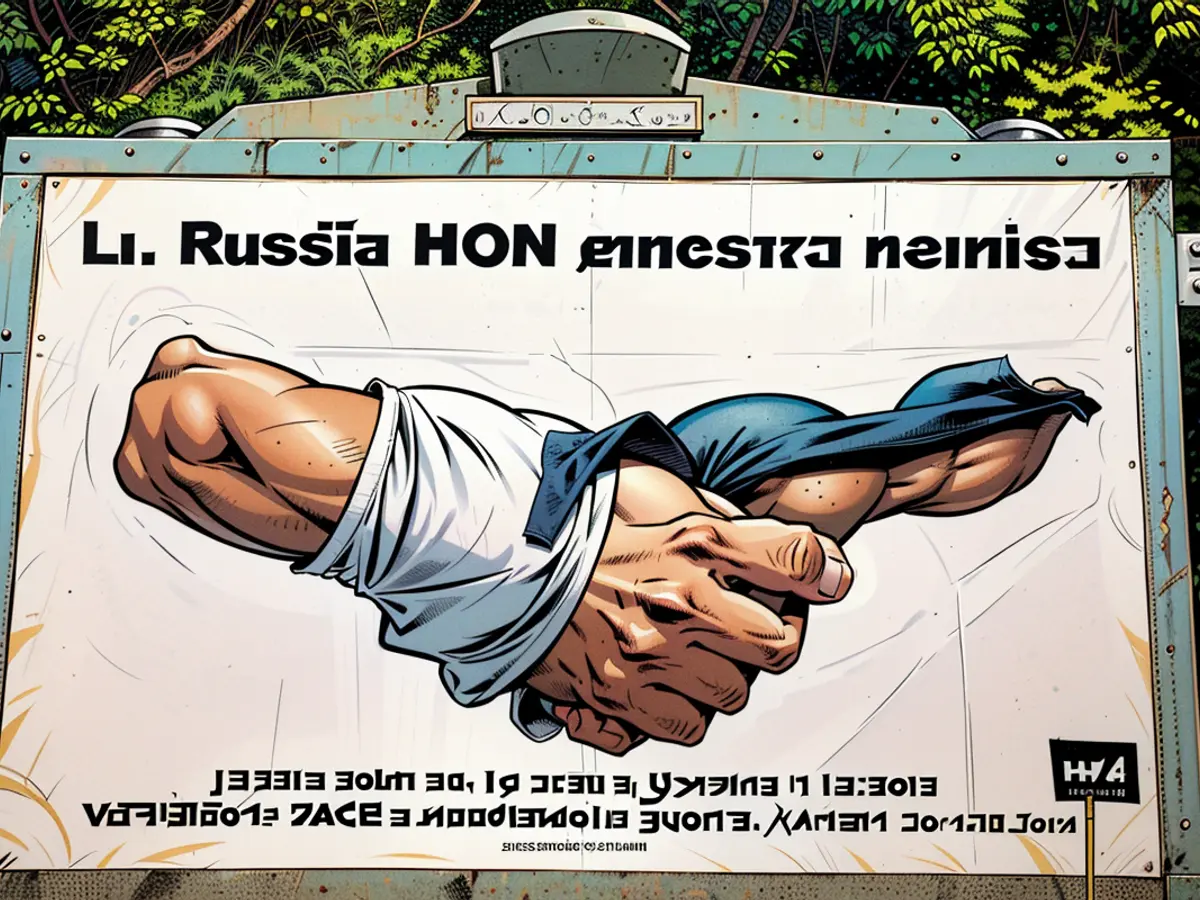Anti-Italian, pro-Russian advertisements surface on billboards nationwide.
Certain individuals, even those seen in Rome lately, incorporate phrases such as, "Enough funds for weapons for Ukraine and Israel. We crave peace. We denounce war."
These posters initially appeared in northern Italy in June and have since been spotted in Verona, Modena, Parma, Pisa, and several cities in the Calabria region's southern sector, according to Sovranita Popolare, the organization coordinating the billboard initiative in Rome.
Ukraine's embassy in Rome expressed concern over this development. They shared on their platform, "We are troubled by the audacity of Russian propaganda in the Eternal City," further commenting, "We appeal to @comuneroma to reconsider granting permits for such posters that purposefully rehabilitate the image of the belligerent state."
Responses from regional authorities have varied. In some places, the posters were taken down by local authorities, while in others, they have been allowed to remain until their payment term ends.
The posters have sparked disapproval from Rome's city hall due to their use of the city's name and symbol. In a decree to local police and the advertising firm managing the billboards in Rome, it ordered the removal of all posters.
The advertising company, Nuovi Spazi Advertising Srl, did not respond to CNN's request for comment. Despite the order, on Friday, one poster still remained on Piazza Mazzini, a bustling traffic circle in a high-class residential area.
Group references Italian constitution
On Friday, Sovranita Popolare published an extensive article on its website, accepting responsibility for the campaign and referencing Article 11 of the Italian constitution, which states: "Italy rejects war as a tool of aggression against the freedom of other nations and as a means to resolve international disputes.
"Italy supports, under equal terms with other states, limitations to sovereignty necessary for a world order that promotes peace and justice among nations. Italy fosters and encourages international organizations promoting such objectives," the constitution continues.
The group, who sent CNN the article in response to a request for comment, claims that since Russia's invasion of Ukraine, "politicians, leaders, parties, and government, with the help of allied and compliant media, have slowly incited fear, portraying Europe as under imminent invasion."
They continue, "For two years, Italian warmongers have been perpetuating Russophobia, breeding a hatred towards Russian people, culture, and art."
Officially, the Italian government, led by Giorgia Meloni, continues to support Ukraine's military aid, as per a European Union resolution. Meloni and Ukrainian President Volodymyr Zelensky have met several times in Rome. Earlier this month, they met at the European House's Ambrosetti Forum in Cernobbio, northern Italy.
However, several members of Meloni's coalition have privately expressed sympathy for Russia, including the late former prime minister Silvio Berlusconi – whose close relationship with Russian President Vladimir Putin was well-documented – and her deputy prime minister and transport minister, Matteo Salvini, who was famously photographed wearing a Putin T-shirt in Moscow's Red Square before the war began.
A survey conducted in May by the European Council of Foreign Relations think tank showed that a majority of Italians, along with Greeks and Bulgarians, opposed increasing aid to Ukraine.
The Russian propaganda posters have not caused significant public outcry in Italy, partly due to their appearance during the summer months, when most Italians go on vacation.
Most of the comments on the Ukrainian embassy's post expressed that Italy should not be subject to censorship and that free speech should be upheld.
Italian law does not require poster content to be approved by cities or regions, but advertising space companies are expected to adhere to rules prohibiting support for fascism or extreme views, according to a spokesperson from Italy's main media governing body.
The Russian propaganda posters, containing messages of peace and funding for weapons, have been spotted not only in various Italian cities but also in other European countries. The group behind the posters, Sovranita Popolare, justifies their actions by referencing Article 11 of the Italian constitution, which promotes peace and justice among nations.







